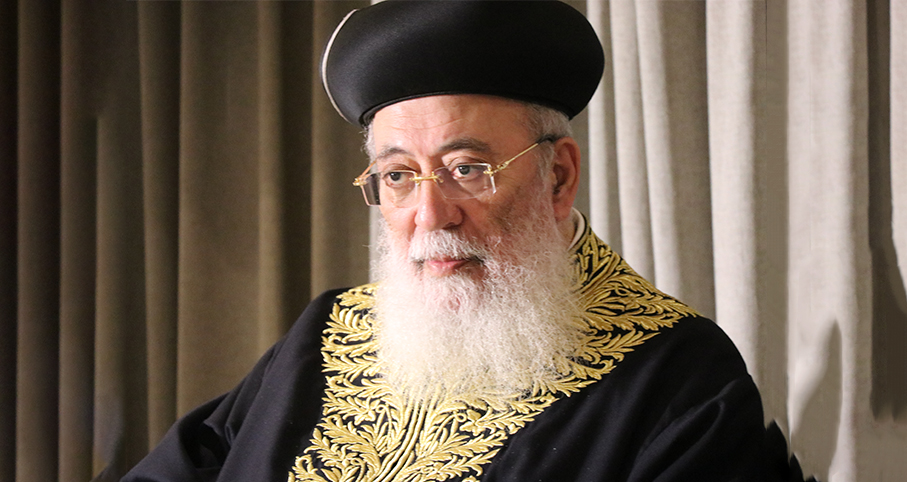- Sections
- Parashat Hashavua
- Torah Portion and Tanach
- Naso
207
Bnei Yisrael were counted "according to their families by the house of their fathers" (Bamidbar 1:2). They also encamped "each man by his flag, by the house of their fathers" (ibid. 2:2). The reason the father is stressed here is that every Jewish child has the right to know not only who his mother is but also who his father is. This basic right builds the encampment on the pillars of sanctity and turns Am Yisrael into a special nation, which impressed the "prophet of the nations," Bilam, who came to curse but ended up blessing. When he saw the Israelite encampment, he proclaimed: "How good are your tents, Yaakov, your dwellings, Israel" (ibid. 24:5). Rashi, following the lead of the midrash (Midrash Aggada, Balak 24), explains that Bilam saw that the opening of one tent was not opposite the opening of the neighboring tent so that one would not see what was happening in the adjacent tent. This is Chazal’s way of teaching the lesson of preserving the sanctity of the Jewish family in language that allows it to be understood on different levels and for different ages, including young children.
This care for the integrity of the Jewish family is a condition for Hashem’s willingness to have His Presence dwell in our encampment and in the Mishkan. We see this from Chazal, in explaining that we can determine Bilam’s intended curse from the opposite blessing that came out. The gemara (Sanhedrin 105b) says on the pasuk about the tents that Bilam tried to stop the Divine Presence from resting upon the people. This is a topic that is discussed in different forms from the middle of Sefer Shemot until Parashat B’haalotcha.
Let us return to the order of our parasha. The census showed the integrity of the Jewish family, as those who carried it out knew that the apparent father’s house was indeed the real father’s house. This made it possible to have a Mishkan, which in turn made it necessary to describe the tasks of the Levi’im within it. The impure must be sent away because the encampment must remain holy in all ways. Certainly there may not be infidelity, making it necessary to discuss the extreme steps taken to deal with the suspicion of failure in this regard (sota). This led to a discussion of other misappropriation: of funds. A famous statement of Chazal stresses the connection between suspicion of sota and the need for nezirut. After it was determined that one can rely on the paternity in the family, it became appropriate to present the Birkat Kohanim, which became intertwined in Klal Yisrael with the blessing of a father to his children. Finally, the nation was at the point that it could make the preparations to complete the Mishkan and welcome in the Divine Presence.
May we merit the fulfillment of the pasuk: "I will dwell among the Sons of Israel, and I will be for them a God" (Shemot 29:45).

Who Listens to Whom?
Rabbi Yossef Carmel | 5771

Parashat Hashavua: Gold, Silver, Precious Stones – Closeness to Hashem (part I)
Rabbi Yossef Carmel | Shevat 5785

Parashat Hashavua: The Significance of a Famine
Rabbi Yossef Carmel | kislev 5785

A Trustworthy Servant
Rabbi Yossef Carmel | 18 ADAR 5769

Performing a Proper Hesped
Rabbi Yirmiyohu Kaganoff | 5771

Historical View of Rav Mordechai Yaakov Breish (Chelkat Yaakov)
Various Rabbis | 5775

Birkat Kohanim – The Priestly Blessing
Chapter Twenty-Part One
Rabbi Eliezer Melamed | 5775

Birkat Kohanim – The Priestly Blessing
Chapter Twenty-Part One
Rabbi Eliezer Melamed | 5775

The Solution to 'Risky' Intellectual Topics
Ayn Aya, Shabbat v, 72
Rabbi Ari Shvat | Nisan 5785
Daf Yomi Makkot Daf 11
R' Eli Stefansky | 21 Nisan 5785







